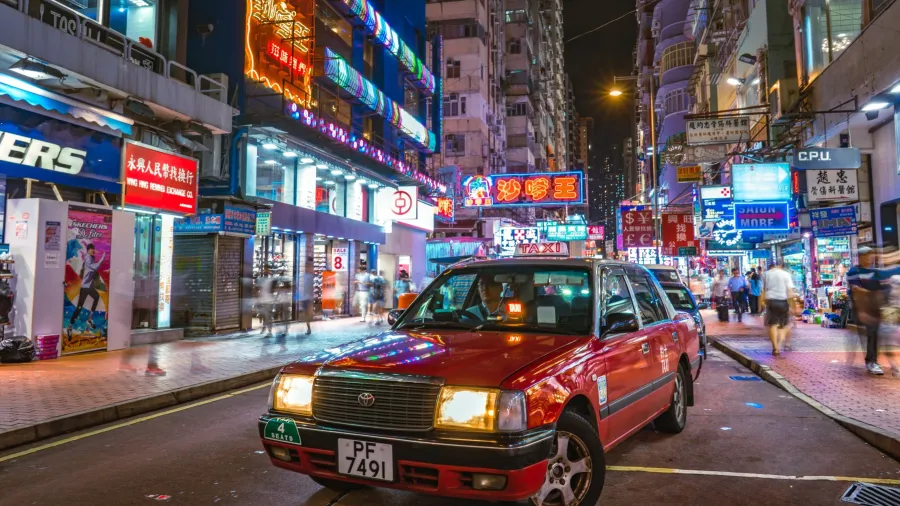
Transport and logistics industry to see varying recovery levels
This is due to its dependence on other industries, as well as global economic activities.
The transport and logistics industry has managed to keep up with the economy, gradually resuming operations and incorporating different strategies to adapt to the new normal. However, as a downstream industry that is dependent on the activities of other industries, transport and logistics’ recovery is expected to be at varying degrees due to the pandemic.
For the remainder of the year, the industry will be facing a tough road ahead. Sub-sectors would have to make sure that their businesses are stable, that they respond effectively to new mobility habits, and that their core logistics operations are entering digitalisation. With the need to conform to the way other industries do business today, companies in the transport and logistics industry would have to rethink their business models further.
Roadmap for EV adoption
In March 2021, the Hong Kong government announced the first Hong Kong Roadmap on Popularisation of Electric Vehicles to promote the adoption of electric vehicles (EVs), which sets out long-term policy objectives and plans for the city to attain zero vehicular emissions before 2050 and for the associated supported facilities to be put up in the region.
“As EV technologies are rapidly evolving, we will review the various strategies and targets of the roadmap around every five years. Taking into account new technological, environmental, social and economic development and situations, we will adjust Hong Kong's policies and measures in promoting EVs, ensuring that we keep up with the times," Environment Secretary Wong Kam-sing said.
The key measures provide that to promote electric private cars, no new registration of fuel-propelled private cars will be allowed, which includes hybrid vehicles, by 2035 or earlier. This was also announced during the 2021 Budget.
The government will also take the lead to set electric cars as standard for its small and medium private cars to be procured or replaced and to encourage public organisations to make reference to a green procurement policy.
For electric commercial vehicles, there will be trials which will include buses, public light buses, goods vehicles, and taxis. The government expects to have a timetable for this by 2025.
Wong said the intention of the roadmap is to provide a very clear direction with a timeline for everyone in town to consider how to meet the target of carbon neutrality by 2050.
"There are many challenges, I have to admit. But I think the intention is clear, that we want the city to become carbon neutral, to provide cleaner air and to make Hong Kong a smart city. So we will work with the trade including the franchised bus companies to consider how we can meet the goal,” he said.
The government also aims to expand the EV charging network and to progressively market the charging services. As for battery recycling, they also aim to legislate a producer-responsibility scheme for retired EV batteries and to promote green technologies for the second-life application of the EV batteries.
They target to have at least 150,000 chargers in private buildings by 2025.
Education and training for technicians and mechanics will also be planned in order to properly have experts on EV maintenance, according to Wong.
Meanwhile, the government is looking at establishing a task force that will examine the high-end development of new decarbonisation technology. They will also establish a $200m Green Tech Fund for the research and development of the projects by integrating technologies such as the Internet of Things, artificial intelligence, and big data.
Wong called on the public's support for the popularisation of electric vehicles to make Hong Kong a liveable, green and smart city, noting that the government will review the roadmap's strategies and targets around every five years.
A report by industry research specialist Fitch Solutions noted that extended incentives provide a sustainable path towards EV adoption in Hong Kong.
“We believe that the demand for EVs in Hong Kong will expand further over the medium term (between 2021-2024) with sales trending higher amid the extension of EV incentives and a rapidly developing charging infrastructure network,” they said in the report.
Preliminary data from the Hong Kong Department of Transport revealed that in the first half of 2020, total EV sales increased by 185% YoY. This expansion in the first half of the year is much higher than Fitch Solutions had previously anticipated.
At the same time, concessions on First Registration Taxes (FRT) of up to $97,500 on the value of newly registered passenger EVs, introduced in April 2018, will also be a main driver of sales at least until 2024 when the concessions expire, according to Fitch Solutions.
The scheme also allows for higher FRT concessions of up to $250,000 on the value of newly registered passenger EVs for owners who deregister their internal combustion engine (ICE) vehicle or old passenger EV with the intention of replacing it with a new EV.
“This has led to EVs being competitively priced relative to their ICE counterparts which combined with higher incomes in Hong Kong will result in the EV market expanding further in 2021,” they said.
The agency added that incentives that include CVs and motorcycles in the FRT concession scheme bodes well for the general adoption of EVs in Hong Kong, as it opens up opportunities for broader adoption of EVs by both consumers and businesses.
“However, we expect an overall decline in EV prices due to automakers ramping up production achieving economies of scale in battery technology to give rise to a more favourable long term picture for EV sales in Hong Kong,” Fitch Solutions said.
The medium-term outlook for EV sales in Hong Kong has been given a boost by the Environment Protection Department’s (EPD) extension of the concessions on FRTs on EVs up to 2024. Tax concessions were originally meant to expire in March 2021 which would have created panic buying of EVs in the months leading up to the expiration date and sales trending lower afterwards.
“We previously highlighted the downside risks from this scenario which have all but disappeared for the time being. We now believe the extension will result in sales trending higher on a more sustainable growth path within our 2020 [to] 2024 medium-term forecast period with sales achieving an annual average growth rate of 38% and sales reaching around 10,900 units by the end of 2024,” the agency said.
Their positive outlook for EV adoption in Hong Kong is further supported by the $2b subsidies announced in 2019 to expand Hong Kong’s charging infrastructure, which they believe will solve range anxiety issues for many willing buyers.
According to the EPD, there were 2,968 installed EV charging stations for public use at the end of March 2020 with plans to increase that number in the coming years, significantly increasing the practicality of EV ownership, thus increasing demand.
Demand for logistics rise amidst trade recovery
For the logistics industry, the leading global brand DHL foresees a strong and sustained growth in cross-border road transportation in Southeast Asia where the e-commerce sector is expected to grow 5.5% in 2021. The predicted upswing is also driven by the renewed growth in many of Southeast Asia's leading economies, as manufacturing rebounds and companies regionalise and diversify their supply chains.
“With the easing of trade restrictions and implementation of new regulatory initiatives in the region such as the ASEAN Customs Transit System and Regional Comprehensive Economic Partnership, trade cooperation will continue to strengthen and bolster intra-Asia trade. This augurs well for ASEAN countries as they gear up to bounce back strongly from the COVID-19 pandemic," CEO, DHL Global Forwarding Asia Pacific CEO Kelvin Leung said.
UOB Kay Hian also forecasts that the growth of e-commerce will drive demand for more logistics space.
“Online retailers are heavy-duty users of [the] logistics space. Online retail sales are supported by 3x the logistics space required for brick-and-mortar retail sales,” UOB Kay Hian said in a note.
The Hong Kong Trade Development Council (HKTDC) pointed out that e‑commerce represents a competitive pressure on traditional brick‑and‑mortar retailers, but it has also created enormous opportunities for air cargo. Consumers demand speed and reliability and air cargo services would have a significant advantage.
“Online retail currently accounts for less than 10% of total retail sales worldwide, which indicates that there is still huge potential for e‑commerce as a future growth driver for the air cargo industry. Air cargo is also likely to be bolstered by the improvement in Asia’s overall manufacturing capability and the continuing shift to Asia of the production of high‑value goods,” HKTDC said.
Moreover, a report by commercial real estate services firm JLL also forecasts Hong Kong’s logistics market to improve in 2021. JLL Hong Kong head of industrial Ricky Lau noted that there are no projects in the pipeline expected for completion before 2022.
“Growing demand for e-commerce, meanwhile, will create new demand in the market. We expect logistic facilities’ rents to rebound slightly in the second half of next year. In [the] short-run, high-end logistic facilities will face higher downward pressure as companies look for cost-saving alternatives. The rental gap between the high-end and mid-end of the logistics market will narrow,” Lau said.
“Logistics remain firmly on the radar of investors and although a moderation in deal activity has been observed, recent signs show the market becoming increasingly sophisticated. The inflow of capital into logistics has resulted in more complex transactions and greater participation by both established and new investors into the sector, which we expect to continue,” JLL Southeast Asia head of industrial and logistics Stuart Ross added.
Logistics and industrial investment in the Asia Pacific surged by 215% YoY in Q2 2021 to $116.85b (US$15b), supported by favourable demand dynamics driven by e-commerce expansion regionally, relative yield spreads and investors’ desire to diversify into more resilient asset classes, JLL’s report stated.
In Hong Kong, social tensions and the COVID-19 outbreak combined to pressure the city’s property market greatly since mid-2019, but the worst of it appears to be over with the industrial sector picking up in the first half of 2021, seeing investment volume growth of 204% YoY.
JLL added that logistics yield spread over the cost of capital remains attractive, providing compelling cash on cash yields and allowing funding of acquisitions easily.
Meanwhile, Hong Kong has also recently intensified air cargo security, rolling out a 100% security screening for export air cargoes, in line with the full implementation of the new policy of the International Civil Aviation Organization (ICAO).
“Hong Kong's export air cargoes are now screened, either at the cargo terminals of Hong Kong International Airport (HKIA) or the Regulated Air Cargo Screening Facilities (RACSF) at off-airport locations,” ICAO Director-General of Civil Aviation Victor Liu said.
He added that this enhanced Hong Kong’s status as one of the most secure air cargo hubs in the world.
To assist and prepare Hong Kong's air cargo industry, the Civil Aviation Department launched the RACSF Scheme in October 2018 and invited interested parties to establish and operate air cargo screening facilities at off-airport locations.
"Despite the impact of the COVID-19 pandemic, Hong Kong's air cargo throughput at HKIA registered a high volume of over 4.5 million tonnes in the 2020/21 financial year,” Liu said.



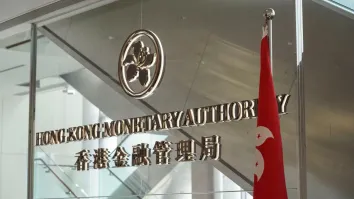


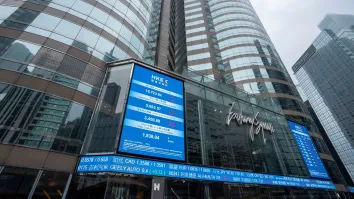








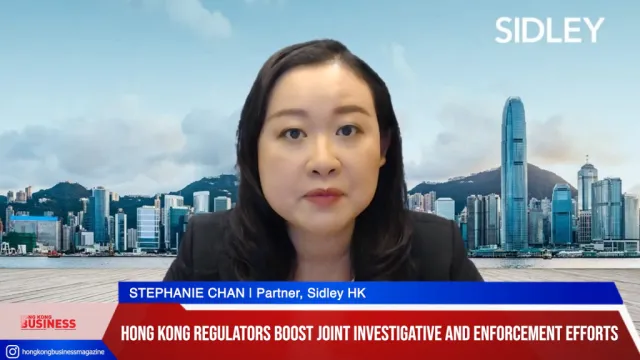
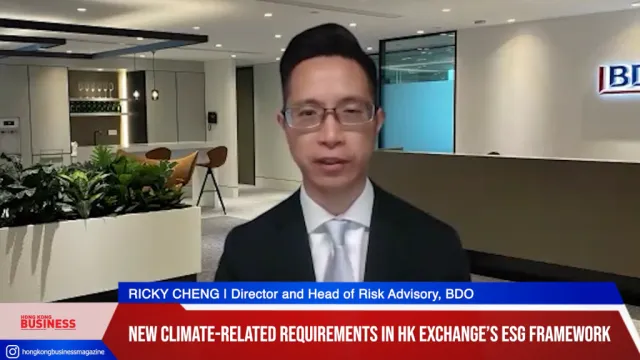
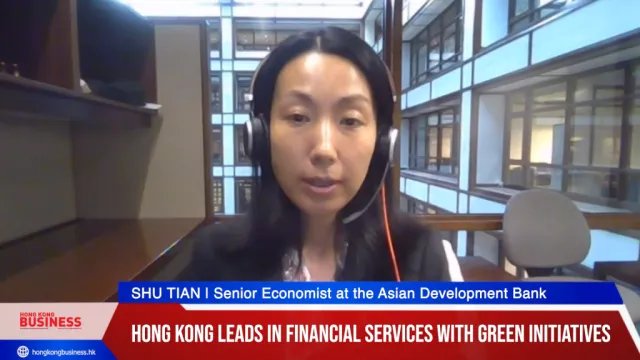

 Advertise
Advertise






